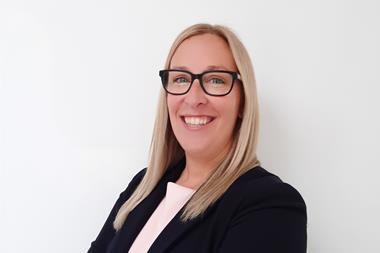Corporates are taking on more risk as a result of the hard insurance market, but what does this mean for claims?
In light of the hard commercial insurance market and challenging economic conditions, corporates are taking on more risk themselves. Against this backdrop, there is growing appetite from multinationals for outsourcing their claims function.
In an insurance world increasingly dominated by globalisation and consolidation, Third Party Administration (TPA) claims handling is an increasingly complex and sophisticated business.
Whilst the concept of a hard market is nothing new, or indeed is the desire for risk managers to outsource claims in response to such conditions, the demands placed on TPAs have increased, and the risk profile of claims have changed significantly.
From a rise in catastrophe activity across the world, to growing areas of civil unrest and sophisticated cyber-attacks, and of course a global pandemic, there are new risks to be managed.
Further, the nature of data that can now be captured and reported on globally has transformed. As a result, the role of a risk manager has become more demanding where claims are concerned.
Taking a global view
Historically, the difficulty in dealing efficiently with global claims has been the lack of consistent and accurate claims data in a single view or, in some areas of the world, any view at all.
With the shift in market and the COVID-19 pandemic proving that with technology and data an international business can be managed from anywhere, many risk managers have taken on more responsibility. And there is growing demand for the outsourcing of claims handling on a worldwide basis as a result.
Taking such an approach can allow risk managers to focus less on geography and more on the cost savings across their business, at a macro level and regardless of territory or claim type.
In line with this trend, in recent years, many risk teams have implemented a clearer division of responsibilities, with TPAs focusing solely on claims handling, and risk managers focusing on the ever growing and shifting demands of not just their claims portfolio but their entire insurance program.
Key considerations
Modern TPAs must provide data, insight, recommendations, and efficiency. In a hard market, rates are under close scrutiny and one major appeal for the outsourcing of claims handling lies in the potential to utilise specialist knowledge and expertise in perhaps hundreds of different territories, in a cost efficient and transparent manner.
Full breadth of claims
When a risk manager is considering the outsourcing of their claims handling, it is necessary to focus both on desk-based work and technical loss adjusting. Claims come in all shapes and sizes and the most effective TPA arrangements can control an entire program regardless of type or size of loss.
The view that a TPA can only handle low value assignments is a notion of the past.
Today, the ability of a TPA to control the full claims file, delivering accuracy and a high level of quality, even from their field work, is paramount.
As a result, it has become increasingly important for TPA organisations to have local presence and expertise, and not simply a centralised management function.
Knowledge of local jurisdictions, customs and practices is vital. Whether it’s a small liability claim or a huge catastrophe loss, a TPA needs to be joined-up with their loss adjusting arm to deliver a quality claims handling solution that will protect the risk manager’s brand and reduce reputational risk.
Data and reporting
The role of a TPA is to not only have the appropriate level of expertise but also to guide the risk manager through the process. Technology is key in this respect.
From the claims reporting platform driving efficiency and a consistent process for handlers, to a TPA’s ability to report on an individual’s performance globally, the IT infrastructure and functionality of a programme can make a huge difference to outcomes.
It is important for any risk manager considering a fully-outsourced scheme to ask the right questions, including:
- Is the TPA truly on one global system for claims and financials?
- Are manual process being utilised in some parts of the globe that may hinder the TPA performance?
Many programmes do not differentiate between the claims system on one hand, and reporting and data on the other. While these aspects go hand-in-hand, it is important to differentiate the two by assuring that the programme can deliver quantifiable data with outcomes and trends to aid the risk manager in assessing their global risk.
The ability for a TPA to scale up in territories where greater risk exists is paramount.
Kirsten Early is global head of TPA at McLarens




















No comments yet